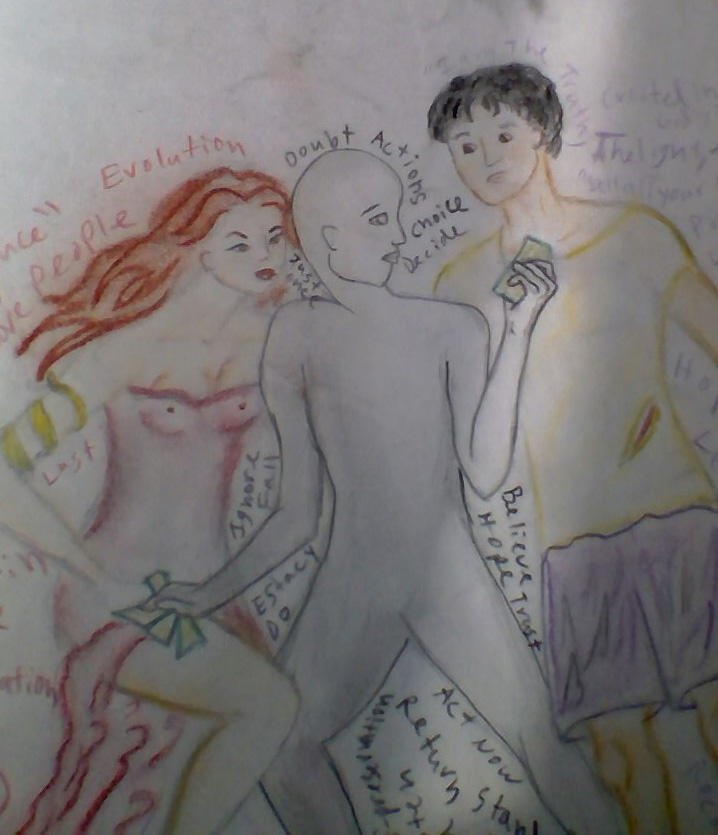I draw as a spiritual practice. One image I created in high school included a simple, beige-skinned man (Jesus), a sexualized female image with a snake armlet (the Tempter) and between them, a non-descript human figure. On each side, I surrounded the images with words. “Compassion” and “hope” lay opposite “greed” and “lust.”
While finishing the image, I thought about any words I might have missed. I thought of homosexuality. I had not included it. My face flushed and my shoulders tightened as I put it next to “lust.”The rush of blood to my face and the stiffness my shoulders felt were unfamiliar to me then. Now I recognize them as the feeling I had when my dad wanted me to return a used item to a store in a new box. It’s the feeling that causes me to cross out words in my journal and forces me to wait and meditate until words of truth come from my pen.
I was experiencing untruth.
It has been a long journey for me spiritually and theologically at GC. I froze in my seat the first time Paul Keim suggested some biblical passages might have been written for political purposes rather than as divine revelation.
I blushed when Duane Stoltzfus said he did not believe accepting evolution in any way compromised his faith. The conflict of the idea made me feel small in my seat. In that smallness, however, there was also a bubble of hope.
This professor exhibited, arguably, all the fruits of the spirit. He also could accept something that my home community (and therefore, my faith) would see as blasphemy.
Yes, I know: accepting evolution as true or understanding the Bible as a historical document is not a comparable act to homosexuality. Choosing a life partner, however, is.
Before I started dating my now fiancé, I was scared. I didn’t want to end up like my parents; I wanted to do things “the right way” and make “the right choice.” I scoured the entire Bible for information on relationships during my winter break my first year at Goshen.
I didn’t find many good examples. Instead I found polygamy, adultery and maids treated badly after being told to sleep with their mistress’s husbands. Daughters were sent out to be raped and a widow seduced her father-in-law to produce a child. There were forbidden interfaith and clan marriages, prostitutes and a man marrying a woman who was going to have a child out of wedlock.
Most of these characters are considered good and just: David, Abraham, Esther, Ruth, Lot, Tamar, Mary and Joseph.
In Ezekiel, the Lord does not condemn Sodom for any sexual injustices. Sodom is condemned for being “arrogant, overfed and unconcerned.”
Likewise, the bits of positive information I did find on relationships also warned against arrogance.
I realized God does not care who I marry. Through scripture I see that God cares if I love and respect the person I marry. God cares if I love and respect others. The Lord does not require us to wear specifically colored shirts or to decide who can be married and who cannot.
We are required to love kindness, do justice and walk humbly with God.



